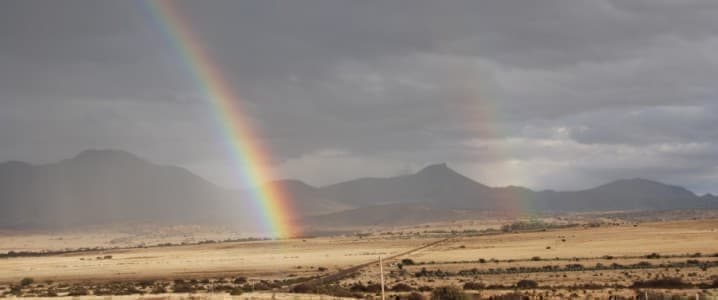It’s been nearly a decade since South Africa lifted a freeze on shale gas exploration, but the resource-rich nation’s potential ensuing shale revolution never quite materialized. Much attention and expectations have been bestowed upon the vast, semi-desert region called the Karoo basin, but a series of studies on the potential shale play over the past decade have shown increasingly disappointing results for prospective drillers. Back in 2017, in an article in The Conversation delightfully titled “Shale gas in South Africa: game-changer or damp squib?,” seemed to lean far toward the damp squib end of the spectrum, pointing out that recent estimates had shown the upper limit of gas reserves in the Central Karoo as discouragingly low--around 20 trillion cubic feet (tcf)--what the author referred to as “trillion cubic feet (tcf).” In fact, it’s about one fortieth of the size of South Africa’s coal reserves. It’s also dwarfed by other natural gas reserves in Africa--Mozambique’s conventional offshore gas reserves hold an estimated 75 tcf.
“A viable gas find in South Africa, even if quite small, would potentially transform the national energy economy,” Robert Scholes wrote in The Conversation. “But making a large investment in infrastructure, regulatory tools, monitoring bodies, and wellfield development for a resource which may not exist is financially, politically and environmentally risky.” Related: Oil Bulls Beware: This Optimism Is Unjustified
But now, nearly four years later, the Karoo is back in the headlines, and shale speculators are once again finding something to be optimistic about. For starters, the context has changed as natural gas becomes an increasingly in-demand resource, with global demand projected to grow at a brisk clip in coming years. According to projections compiled by the International Energy Agency (IEA), global demand for natural gas is on track to outpace both coal and oil by 1.6% each year for the next five years. This growth is being catalyzed by a confluence of factors including plentiful supply, accordingly low prices, and natural gas’ environmental benefits as a less emissions-intensive fossil fuel than oil or coal. For these reasons, gas is going to be the last major fossil fuel to experience peak demand, and will more than likely be the world’s primary energy source toward the middle of this century.
So it’s no wonder that Africa, which has historically been reliant on coal, is looking for ways to break into the shale gas game, and the Karoo has once again found itself at the center of some of those initiatives. And not only the Karoo--a recent gas condensate discovery off the southern coast of South Africa has also renewed enthusiasm for developing a more robust natural gas sector in the region. Natural gas production in South Africa was one of the major themes at last week’s Africa Gas Forum.
And then there’s the fact that the 20 trillion cubic feet estimate might be off--WAY off. Other estimates reported since that 2017 dismissal are citing upper limit numbers closer to 200 trillion cubic feet. Even if the actual extractable gas is merely half that amount, shale gas could be a complete game-changer for South Africa and the African continent as a whole, which has historically experienced a monumentally limiting $50 billion energy sector investment gap each year.
Bringing South Africa’s largely untapped gas resources into the global market would have major implications for the domestic economy, but could also have major implications for the entire world. It may have some positive externalities, adding to the supply of natural gas and undercutting more climate-damaging resources like oil and coal. While natural gas is better, however, experts in the Intergovernmental Panel on Climate Change say that better isn’t good enough, and natural gas extraction will have to be scaled back this decade in order to avoid the worst effects of climate change. In order for Africa to finally get a seat at the table in global energy markets, they would do well not to stop at the Karoo, but start attracting investment for green technologies as well in order to get a foothold in a more renewable future.
By Haley Zaremba for Oilprice.com
More Top Reads From Oilprice.com:
- Oil Prices Drop As Traders Take Profits
- How Middle East Producers Are Pricing Their Oil
- The Global Energy Transition Could Transform African Economies


















